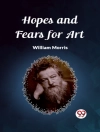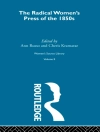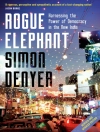Nominated, 2024 Edgar Allan Poe Award in the category of best critical/biographical, Mystery Writers of America
Shortlisted, 2024 Agatha Awards – Best Mystery Nonfiction, Malice Domestic
Posthumous Winner – 2023 IFCA Book Prize, International Crime Fiction Association
Narrative innovation is typically seen as the domain of the avant-garde. However, techniques such as nonlinear timelines, multiple points of view, and unreliable narration have long been part of American popular culture. How did forms and styles once regarded as “difficult” become familiar to audiences?
In Perplexing Plots, David Bordwell reveals how crime fiction, plays, and films made unconventional narrative mainstream. He shows that since the nineteenth century, detective stories and suspense thrillers have allowed ambitious storytellers to experiment with narrative. Tales of crime and mystery became a training ground where audiences learned to appreciate artifice. These genres demand a sophisticated awareness of storytelling conventions: they play games with narrative form and toy with audience expectations. Bordwell examines how writers and directors have pushed, pulled, and collaborated with their audiences to change popular storytelling. He explores the plot engineering of figures such as Raymond Chandler, Agatha Christie, Dashiell Hammett, Patricia Highsmith, Alfred Hitchcock, Dorothy Sayers, and Quentin Tarantino, and traces how mainstream storytellers and modernist experimenters influenced one another’s work. A sweeping, kaleidoscopic account written in a lively, conversational style, Perplexing Plots offers an ambitious new understanding of how movies, literature, theater, and popular culture have evolved over the past century.
Spis treści
Acknowledgments
Introduction: Mass Art as Experimental Storytelling
Part I
1. The Art Novel Meets 1910s Formalism
2. Making Confusion Satisfactory: Modernism and Other Mysteries
3. Churn and Consolidation: The 1940s and After
Part II
4. The Golden Age Puzzle Plot: The Taste of the Construction
5. Before the Fact: The Psychological Thriller
6. Dark and Full of Blood: Hard-Boiled Detection
7. The 1940s: Mysteries in Crossover Culture
8. The 1940s: The Problem of Other Minds, or Just One
Part III
9. The Great Detective Rewritten: Erle Stanley Gardner and Rex Stout
10. Viewpoints, Narrow and Expansive: Patricia Highsmith and Ed Mc Bain
11. Donald Westlake and the Richard Stark Machine
12. Tarantino, Twists, and the Persistence of Puzzles
13. Gone Girls: The New Domestic Thriller
Conclusion: The Power of Limits
Notes
Index
O autorze
David Bordwell is the Jacques Ledoux Professor Emeritus of Film Studies at the University of Wisconsin–Madison. His many books include, most recently,
Reinventing Hollywood: How 1940s Filmmakers Changed Movie Storytelling (2017), as well as the widely used textbook
Film Art: An Introduction (twelfth edition, 2020). He cohosts the “Observations on Film Art” series of video essays on the Criterion Channel.












